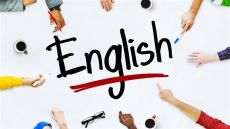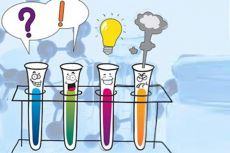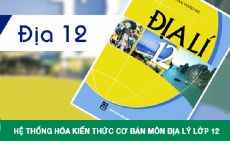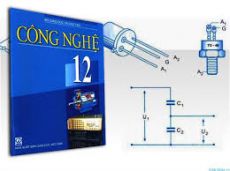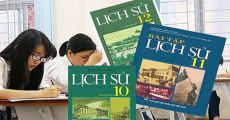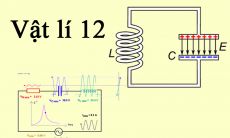Đề thi thử THPT QG năm 2021 môn Tiếng Anh
Trường THPT Đồng Khởi Lần 2
-
Câu 1:
Indicate the word whose underlined part differs from the other three in pronunciation: compose, opponent, wholesale, colony
A. compose
B. opponent
C. wholesale
D. colony
-
Câu 2:
Indicate the word whose underlined part differs from the other three in pronunciation: odour, honour, pour, vapour
A. odour
B. honour
C. pour
D. vapour
-
Câu 3:
Indicate the word that differs from the other three in the position of primary stress: capacity, conversation, disappearance, sympathetic
A. capacity
B. conversation
C. disappearance
D. sympathetic
-
Câu 4:
Indicate the word that differs from the other three in the position of primary stress: furniture, reference, confidence, dependence
A. furniture
B. reference
C. confidence
D. dependence
-
Mark the letter A, B, C, or D on your answer sheet to indicate the correct answer to each of the following questions.
Câu 5:
I hope you won't take it_____________if I suggest an alternative remedy.
A. offence
B. amiss
C. upset
D. most
-
Câu 6:
Mary and I had both bought exactly the same kind of school bag without knowing it. It was a complete_____________
A. luck
B. chance
C. fortune
D. coincidence
-
Câu 7:
There was nothing special about his clothes_____________from his flowerv tie.
A. but
B. except
C. other
D. apart
-
Câu 8:
_____________you're late?
A. Why
B. What makes
C. How come
D. How
-
Câu 9:
His illness made him_____________of concentration.
A. incompetent
B. unable
C. incapable
D. powerless
-
Câu 10:
If you are_____________with your goods, contact us within a week of receipt, and we will refund your money in full.
A. not completely satisfied
B. not completely satisfactory
C. not completely satisfying
D. not satisfied completely
-
Câu 11:
Don’t worry about trying to catch last bus home, as we can easily_____________you up for the night.
A. keep
B. put
C. take
D. set
-
Câu 12:
Don’t touch that wire or you’ll get an electric_____________
A. current
B. shock
C. charge
D. fire
-
Câu 13:
The total cost to renovate the building was $20 million, _____________double the original estimate.
A. mostly
B. most all
C. the most
D. almost
-
Câu 14:
I think the_____________thing would be to catch a bus home. I’m tired of walking.
A. sensitive
B. sensational
C. sensible
D. senseless
-
Câu 15:
We have a party tonight and Mary is worried about_____________
A. what to wear
B. which wearing
C. these wearing
D. that she wearing
-
Câu 16:
My grandfather is getting old and forgetful. _____________, he is experienced.
A. Be that as it may
B. Regardless
C. In as much as it is
D. Consequently
-
Câu 17:
He behaved_____________nothing had happened.
A. therefore
B. so
C. if
D. as though
-
Câu 18:
After the flood, all the drains were overflowing_____________storm water.
A. with
B. by
C. from
D. for
-
Câu 19:
He suffered from depression_____________by overwork and ill-health.
A. brought on
B. coming about
C. taken up
D. pull through
-
Mark the letter A, B, C, or D on your answer sheet to indicate the word(s) CLOSEST in meaning to the underlined word(s) in each of the following questions.
Câu 20:
They decided to tie the knot after they had loved each other for 10 years.
A. get divorced
B. get married
C. break up
D. fall out
-
Câu 21:
These customers grumbled about the food. They didn't seem to be pleased.
A. talked
B. complained
C. thought
D. bargained
-
Mark the letter A, B, C, or D on your answer sheet to indicate the word(s) OPPOSITE in meaning to the underlined word(s) in each of the following questions.
Câu 22:
Inadequate supply of oxygen to the blood can cause death within minutes.
A. Sufficient
B. Nonexistent
C. Rich
D. Useful
-
Câu 23:
There are several different kinds of faults in reading which are usually more exaggerated with foreign learners.
A. overestimated
B. understated
C. overemphasized
D. undertaken
-
Mark the letter A, B, C, or D on your answer sheet to indicate the option that best completes each of the following exchanges.
Câu 24:
David:" _____________". - John: "Thanks. I'm glad to hear that".
A. Where did you buy your bike?
B. Your bike is new, isn't it?
C. What a nice bike you have!
D. My bike is very expensive.
-
Câu 25:
Tim: "Do you need any help? - Jenifer:" _____________"
A. How can I help you?
B. No, thanks. I'm fine.
C. Let me help you.
D. I'm sorry.
-
Read the following passage and mark the letter A, B, C, or D on your answer sheet to indicate the correct word or phrase that best fits each of the numbered blanks from 26 to 30.
Sailing tourism (26) _____________to any holiday where the main purpose of the trip is to sail or learn how to sail. Sailing tourism has two broad (27) _____________, which are defined by the type of boat used: a yacht (which is also used as overnight accommodation) or a dinghy (a smaller boat without berths - therefore overnight accommodation is (28) _____________land).
Yacht sailing holidays tend to be either bareboat charters, where the boat is hired - without crew - and can be sailed to any chosen destination, or flotilla, where all boats in the flotilla follow a pre-planned route. Dinghy sailing holidays are most (29) _____________to be combined (30) _____________a sailing course. As with most niche markets, there are scant data available regarding the sailing tourism sector. However, it is estimated that around 10 million sailing holidays are taken each year.
Câu 26:
(26)....................
A. denotes
B. means
C. indicates
D. refers
-
Câu 27:
(27).....................
A. categories
B. ranks
C. levels
D. orders
-
Câu 28:
(28)........................
A. under
B. in
C. at
D. on
-
Câu 29:
(29).................
A. unlike
B. unlikely
C. likely
D. like
-
Câu 30:
(30)......................
A. with
B. from
C. to
D. by
-
Read the following passage and mark the letter A, B, C, or D on your answer sheet to indicate the correct answer to each of the questions from 31 to 35.
I did a business administration degree at Bristol University and then worked for a credit card company for eight years. During this time, I was assistant marketing manager. I gained a lot of useful experience doing this job, but in 1997,1 decided that I needed a change. I moved to Thomson Holidays where I have worked as a manager ever since. My main job is to think up new and interesting ideas for holidays.
When I'm working from my office in the UK, I arrive at 9 a.m. First I answer my emails, then plan the day. My role is to investigate new projects for Thomson Holidays in our Mediterranean resorts. I am responsible for coming up with ideas, developing them and evaluating their success.
We have lots of meetings in the office which involve the marketing department, holiday reps and people that we bring in from outside such as entertainment organizers. The aim is to develop an exciting idea into a realistic and workable project.
Once a month I spend a few days overseas checking possible resorts, meeting with reps to develop their roles and working out how events should be sold to the customer. I work with resort supervisors, use their local knowledge of bars and clubs for venues, talk through new ideas and find out how existing ones are working. I also meet holidaymakers.
I have to be very open-minded because ideas come from anywhere. I love my job because I get to travel and I am working on a project that everyone loves.
Câu 31:
What is the writer's main purpose in writing the text?
A. To explain the best way to choose a holiday.
B. To advise people on holiday resorts.
C. To explain what her job involves.
D. To show how stressful her job is.
-
Câu 32:
What do we learn about the writer in the first paragraph?
A. She learned a lot from her first job.
B. She disliked her first job.
C. She lost her first job.
D. She worked in the administration department of Bristol University.
-
Câu 33:
The writer has to_____________.
A. send emails all day
B. find out if new ideas could actually work
C. entertain the holiday reps
D. spend all of her time having meetings in the office
-
Câu 34:
What does she say about her job?
A. She never knows where or how a new idea might come to her.
B. It makes her very popular with lots of people.
C. She spends too much time in bars and clubs.
D. She has a few problems with local people at the resorts.
-
Câu 35:
Which of the following is the best description of the writer?
A. A working woman.
B. The travel agent who is trying to get a promotion.
C. A woman who spends a lot of time on holiday and has an easy life.
D. A woman who makes a lot of money by going to clubs and bars.
-
Read the following passage and mark the letter A, B, C, or D on your answer sheet to indicate the correct answer to each of the questions from 36 to 42.
Newspaper publishers in the United States have long been enthusiastic users and distributors of weather maps. Although some newspapers that had carried the United States Weather Bureau's national weather map in 1912 dropped it once the novelty had passed, many continued to print the daily weather chart provided by their local forecasting office. In the 1930's, when interest in aviation and progress in air-mass analysis made weather patterns more newsworthy, additional newspapers started or resumed the daily weather map. In 1935, The Associated Press (AP) news service inaugurated its WirePhoto network and offered subscribing newspapers morning and afternoon weather maps redrafted by the AP's Washington, B.C., office from charts provided by the government agency. Another news service, United Press International (UPI), developed a competing photowire network and also provided timely weather maps for both morning and afternoon newspapers. After the United States government launched a series of weather satellites in 1966, both the AP and UPI offered cloud-cover photos obtained from the Weather Bureau.
In the late 1970’s and early 1980's, the weather map became an essential ingredient in the redesign of the American newspaper. News publishers, threatened by increased competition from television for readers' attention, sought to package the news more conveniently and attractively. In 1982, many publishers felt threatened by the new USA Today, a national daily newspaper that used a page-wide full-color weather map as its key design element. That the weather map in USA today did not include information about weather fronts and pressures attests to the largely symbolic role it played. Nonetheless, competing local and metropolitan newspapers responded in a variety of ways. Most substituted full-color temperature maps for the standard weather maps, while others dropped the comparatively drab satellite photos or added regional forecast maps with pictorial symbols to indicate rainy, snowy, cloudy, or clear conditions. A few newspapers, notably The New York Times, adopted a highly informative yet less visually prominent weather map that was specially designed to explain an important recent or imminent weather event. Ironically, a newspaper's richest, most instructive weather maps often are comparatively small and inconspicuous
Câu 36:
What does the passage mainly discuss?
A. The differences between government and newspaper weather forecasting in the United States
B. The history of publishing weather maps in United States newspapers
C. A comparison of regional and national weather reporting in the United States
D. Information that forms the basis for weather forecasting in the United States
-
Câu 37:
The word "resumed" in the passage is closest in meaning to_____________
A. began again
B. held back
C. thought over
D. referred to
-
Câu 38:
According to the passage, one important reason why newspapers printed daily weather maps during the first half of the twentieth century was_____________.
A. the progress in printing technology
B. a growing interest in air transportation
C. a change in atmospheric conditions
D. the improvement of weather forecasting techniques
-
Câu 39:
The phrase "attests to" in the passage is closest in meaning to_____________.
A. makes up for
B. combines with
C. interferes with
D. gives evidence of
-
Câu 40:
The word "others” in the passage refers to_____________
A. newspapers
B. ways
C. temperature maps
D. weather maps
-
Câu 41:
In contrast to the weather maps of USA Today, weather maps in The New York Times tended to be_____________.
A. printed in foil color
B. included for symbolic reasons
C. easily understood by the readers
D. filled with detailed information
-
Câu 42:
The author uses the term "Ironically” in the passage to indicate that a weather map's appearance_____________.
A. is not important to newspaper publishers
B. does not always indicate how much information it provides
C. reflects how informative a newspaper can be
D. often can improve newspaper sales
-
Mark the letter A, B, C, or D on your answer sheet to indicate the underlined part that needs correction in each of the following questions.
Câu 43:
You (A) are (B) quite so thin that you (C) can slip (D) between the bars.
A. are
B. quite so
C. can slip
D. between
-
Câu 44:
(A) Hardly he had arrived (B) at the airport when he (C) realized that he (D) had forgotten his wallet.
A. Hardly he had
B. at
C. realized
D. had
-
Câu 45:
(A) To everyone's (B) surprise, it wasn't in Ha Noi (C) which he (D) made his fortune, although that's where he was born.
A. To
B. surprise
C. which
D. made
-
Mark the letter A, B, C, or D on your answer sheet to indicate the sentence that is closest in meaning to each of the following questions.
Câu 46:
I can't go with you now.
A. I wish I can go with you now.
B. I wish I could go with you now.
C. I wish I had gone with you now.
D. I wish I has gone with you now.
-
Câu 47:
"Would you like to attend the party with me, Mary?", said John.
A. John asked Mary if you would like to attend the party with me.
B. John said to Mary that he would like to attend the party with her.
C. John told Mary to attend the party.
D. John invited Mary to attend the party with him.
-
Câu 48:
This is the most interesting film I have ever seen.
A. I have ever seen a more interesting film than this before.
B. I have never seen a more interesting film than this before.
C. This is the first time I have ever seen an interesting film.
D. I have seen this interesting film before.
-
Mark the letter A, B, C, or D on your answer sheet to indicate the sentence that best combines each pair of sentences in the following questions.
Câu 49:
She didn't take her father's advice. That's why she is out of work.
A. If she had taken her father's advice, she would not have been out of work.
B. If she took her father's advice, she would not be out of work.
C. If she had taken her father’s advice, she would not be out of work.
D. If she takes her father's advice, she will not be out of work.
-
Câu 50:
We chose to find a place for the night. We found the bad weather very inconvenient.
A. Bad weather was approaching, so we started to look for a place to stay.
B. The bad weather prevented us from driving any further.
C. Seeing that the bad weather had set in, we decided to find somewhere to spend the night.
D. Because the climate was so severe, we were worried about what we'd do at night.




